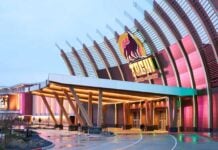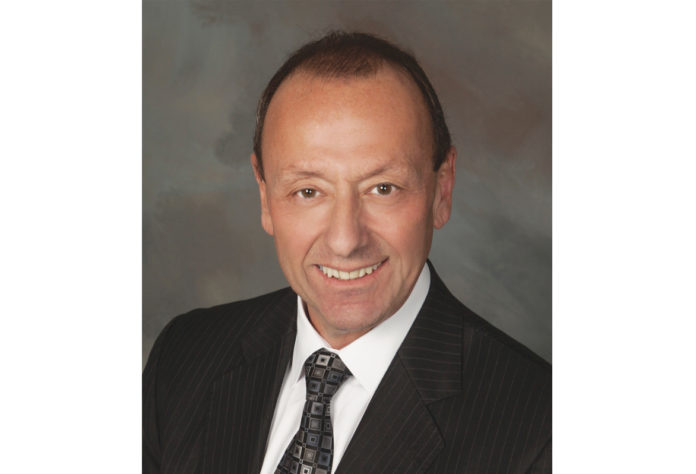by Andrew Klebanow
It has now been over three years since the start of the pandemic and fortunately, the world has largely recovered from its most debilitating effects. It was not an easy journey, particularly for casino operators. Managers of Indian casinos had to learn how to operate under strict safety protocols and provide safe environments for their customers and employees. Each tribal gaming operator had to rely on the advice of local health authorities, tribal leadership, and their own common sense to come up with policies that protected their guests, employees, and their community. Collectively, they did an admirable job.
Although mask mandates, social distancing requirements, and other protocols have come to an end, other policies enacted during the pandemic remain. Many casino operators learned that they no longer need buffets and their high operating costs to drive visitation. They learned that fewer slot machines on the casino floor, spaced appropriately, could yield better results; and perhaps most important, they learned that they no longer needed to designate the majority of their gaming floors as smoking zones.
Nearly 150 Indian casinos are now non-smoking properties. These include some of the largest and most successful casinos in North America including Mohegan Sun and Foxwoods Resort Casino in Connecticut, Pechanga Resort & Casino in California, Mystic Lake in Minnesota, as well as the three casinos owned by the Tulalip Tribes and Ilani Casino Resort in Washington. In addition, dozens of other properties altered the allocation of casino space devoted to non-smokers, essentially converting what were once non-smoking areas into smoking zones, and designating the vast majority of their gaming floors as non-smoking areas. Others still maintain the belief that smoking is essential for profitability, even though data appears to refute that argument.
Types of Non-Smoking Strategies
What has evolved over the past three years are five unique non-smoking strategies, ranging from those that designate 100 percent of interior spaces as non-smoking to ones that appeal to both smokers and non-smokers. These include the following types.
100 Percent Non-smoking Properties
In order to be designated as a non-smoking property by the American Non-Smoking Rights Foundation (ANSRF), a casino property must designate 100 percent of its interior spaces as non-smoking. Smoking is permitted as long it takes place outside the building, whether in an open area or a partially sheltered structure. A challenge for many casinos is identifying outdoor spaces near the gaming floor that are convenient for smokers, and provide adequate safety and security.
Outdoor Gaming and Smoking Patios
Outdoor gaming and smoking patios are essentially covered, outdoor areas where smokers can play slot machines and smoke. This concept was originally developed by commercial casinos that operated in states such as Ohio and Maryland, which have strict prohibitions on indoor smoking as mandated by their state laws. These concepts were adopted by some tribal casinos. Constructing structures that provide a high degree of comfort in four season environments and keeping them clean can be difficult.
For example, Yaamava’ Resort & Casino at San Manuel built a new outdoor gaming & smoking patio that features a state-of-the-art ventilation system, and provides a comfortable and well-ventilated environment for their guests. The space is 2,530 sq. ft. and holds 94 slot machines. The property’s remaining 4,600 slot machines and 130 table games are located inside the casino in non-smoking areas.
Because of the possibility of employees being exposed to second-hand smoke while servicing these areas, such structures may not receive an ANSRF designation. Nevertheless, it remains a reasonable compromise that protects non-smoking customers while providing smoking customers with the option of smoking while playing slots.
Newly Constructed Buildings Devoted to Smokers
In an effort to meet the needs of its smoking customers, some operators have chosen to build entirely new facilities devoted exclusively to smokers. One of the most ambitious efforts in Indian gaming was the construction of an entirely new building at Spirit Mountain Casino in Grande Ronde, OR, which opened in June of 2023. The building features approximately 120 slot machines and is equipped with its own HVAC system, and double entry doors with positive air pressure that prevents smoke from permeating the main building. The property’s remaining 1,600 slots and 28 tables are located exclusively in non-smoking areas.
Converting Non-Smoking Areas to Smoking Areas
A more common example found in Indian casinos are glass-enclosed rooms that were originally designed as non-smoking zones, and were subsequently converted to smoking rooms near the outset of the pandemic. These casinos basically switched their smoking and non-smoking areas. For example, Grand Casino Mille Lacs converted what was once a glass-enclosed non-smoking area with 130 machines into their designated smoking area. The remaining 1,600 machines and 30 table games are now in the non-smoking portion of the casino. A similar strategy was employed at the tribe’s sister property in Hinckley, MN where a room with 380 slot machines was converted to a smoking area, separated from the main casino by glass walls. The remaining 2,000 slot machines and 30 table games are smoke-free. The problem with this approach is that cigarette smoke tends to migrate into the main casino whenever the glass doors open.
Airport Style Smoking Lounges
Another approach to meeting the needs of smokers while protecting non-smokers is the construction of airport-style smoking lounges within the confines of the casino. Mystic Lake Casino in Prior Lake, MN took this approach. Rather than force customers to go outside, they constructed a smoking lounge with a separate ventilation system, where customers could avail themselves of a cigarette, and then get back into the action quickly. This approach allowed the operator to keep its entire casino with 3,900 slot machines and 60 table games in non-smoking areas. Big Six Casino, the tribe’s sister property, is 100 percent non-smoking.
One Room, Two Zones, Same Air
Finally, there are those casinos that continue to offer smoking and non-smoking areas within the confines of the main casino. In these cases, non-smokers are exposed to second-hand smoke since there is no physical separation that prevents smoke from migrating throughout the casino. Some operators promote “state-of-the-art” ventilation systems as being adequate to clean the air, even when they fail to protect the non-smoking public and their employees from second-hand smoke. As a general rule, if you can smell cigarette smoke, you are breathing cigarette smoke.
The commercial casinos in New Jersey and Rhode Island are examples of this strategy. This approach also remains prevalent in many Indian casinos.
Benefits of Non-Smoking Casinos
The long-term benefits of non-smoking casinos continue to manifest themselves. First and foremost, employees are protected from exposure to second-hand smoke. Operators that provide such environments have found it easier to recruit and retain employees in the face of ongoing labor shortages. Customer satisfaction is also enhanced among both non-smokers and smokers alike. Smokers have come to expect that they have to go outside when they want to enjoy a cigarette, whether at their workplace, a movie theater, a public building, at a bar or at a restaurant. Many smokers in fact prefer not to be around cigarette smoke unless they choose to do so. Numerous opinion surveys support this
assertion.
Casino operators that have pushed smoking out of their buildings are also reporting lower maintenance costs. Slot chairs, table game felt, bumpers, and carpets do not need to be replaced as often with the absence of cigarette burns. Slot machine maintenance and durability are also enhanced without cigarette smoke migrating onto monitors and circuit boards. HVAC systems do not have to work as hard and air filters do not need to be replaced as often in non-smoking environments. The casinos also just feel cleaner.
Of all the lessons learned from the pandemic, adapting to customer preferences toward non-smoking environments and the implementation of strategies to protect customers and guests from second hand smoke stands out as one the most important.
Andrew Klebanow, Principal at Klebanow Consulting, has worked in the casino industry since 1977 and as a gaming consultant since 2001. He can be reached by calling (702) 845-7346 or email [email protected].















































